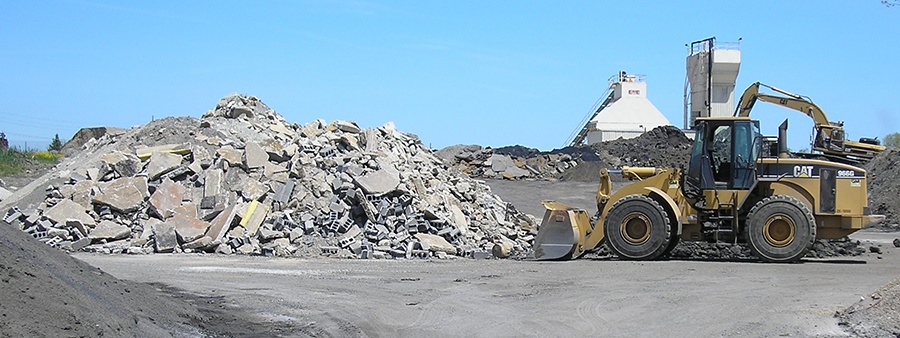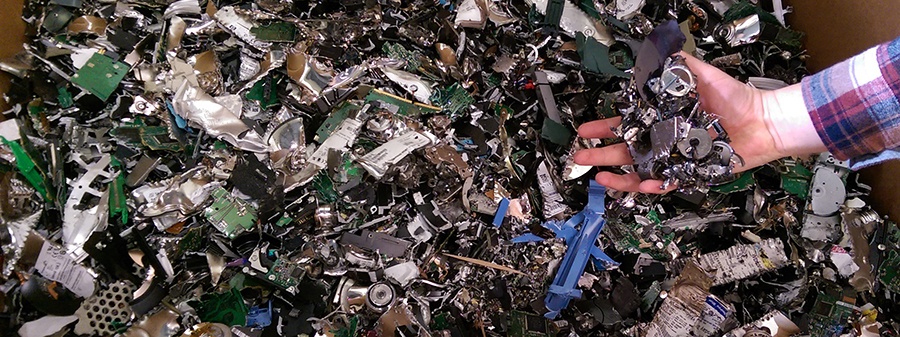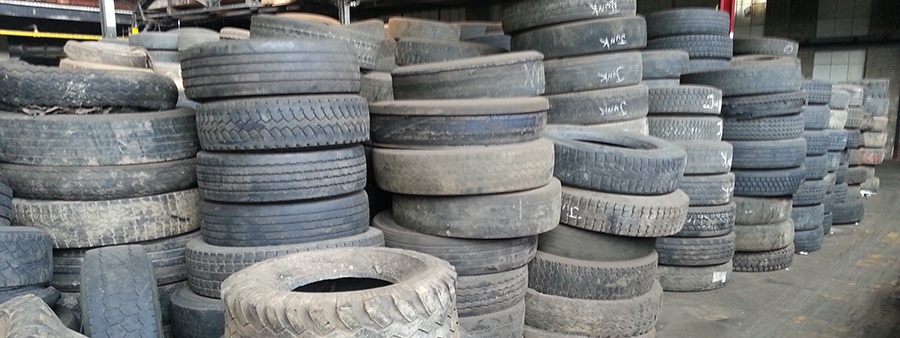Learn what classes of recyclable materials your recycling center in New Jersey can recycle.
For anyone looking to start a recycling business in New Jersey, there's a few things you need to clarify ahead of time before you should start looking at the recycling process. The two biggest things you'll need to nail down before you can get the ball rolling is where is your facility going to be located, and what class of recyclable material you're going to recycle in New Jersey.
In case you didn't know, recycling in New Jersey is a highly regulated industry. You can't just open up a facility and start accepting everything under the sun. In fact, you might be disappointed to know that getting a recycling license, permit, or approval in New Jersey can take a long, long time. In fact, the process is so convoluted that we discuss it in depth in our article how long does it take to get a recycling approval in New Jersey?

But before you even think about starting the process, you need to figure out what your facility will recycle. Are you going to recycle concrete? Are you going to recycle asphalt? Batteries? Use Oil? Paints? Plastic? Metal? Are you going to recycle a couple of different types of materials?
You can recycle a lot of various types of materials, but depending on what you're going to recycle, you'll generally fall under one of 4 classifications according to the NJDEP. They refer to these as 'classes' of recyclable materials.
Classes of Recyclable Materials in New Jersey
Like I said, there are generally 4 classes of recyclable materials in New Jersey. There are additional options for folks with certain recycling interests (like recycling tires for creating artificial reefs, for example) that don't necessarily fall within these classifications, but I'll go over that below. Let's look at the various classes of recyclable materials in New Jersey:
Class A Recyclable Materials
Class A recyclable materials are what most folks think of when you hear about recycling. When you hear of post-consumer materials, such as glass, cardboard, paper, plastic, etc., that's what Class A recyclable materials are. Check out our article What are Class A recyclable materials in New Jersey to learn more.
Class A recyclable materials in New Jersey also include metal recycling as well. We go over this incredibly complicated topic in a post on Metal Recycling, Auto-Salvage Yards, and Class A Recycling Approvals in New Jersey.
The best part of Class A recyclable materials is that you don't need a formal New Jersey Recycling Approval from the NJDEP. Meaning, if you're going after a Class A recycling approval, you can save you quite a bit of time and money in the approval process.

Construction & demolition materials are how people commonly refer to Class B recyclable materials. Items like concrete & asphalt usually spring to mind. Class B recyclable materials also include things like non-painted or non-treated wood, trees & brush material, stumps, and leaves. We cover over this in more detail in our article What are Class B recyclable materials in New Jersey?
Additionally, some other items like asphalt shingles, tires, and non-hazardous (<30,000 ppm) petroleum contaminated soil are considered Class B recyclable materials. The materials can be either pre or post-consumer materials. We go over this topic in-depth in our article on What's required to obtain a Class B recycling approval in New Jersey.

Class C Recyclable Materials
This is a pretty simple thing to remember. C is for compost. Plant matter like grass & leaves, as well as food matter is considered Class C recyclable materials.
The difference between leaves in Class B & Class C recyclable materials is easy. Class C materials are composted, where as Class B recyclable materials are processed. For example, Class C recyclable materials are usually laid out in long windrows and left to turn into compost over time. Class B materials are like if you cut a tree down and threw the whole thing, leaves included, through a wood chipper.

Class D Recyclable Materials
Class D recyclable materials is a mixed bag of various types of universal waste materials. These types of materials include things such as used oils, antifreeze, latex paints, light bulbs, oil-based finishes, batteries, mercury-containing equipment, and consumer electronics. I like to tell folks that Class D recyclable materials are a catch all for the rest of the stuff that gets recycled in New Jersey. We cover Class D recyclable materials in more detail in New Jersey Class D Recyclable Materials - Electronics, Use Oil, and Universal Waste
The Classes of Recyclable Materials in New Jersey & Costs
This is a heavy handed topic since there are a lot of costs surrounding the entire process. From annual fees, to application fees, to renewals & modification costs, recycling in New Jersey can be very, very expensive. Not only that, but it gets confusing too, especially if you're operating a complex recycling facility. We go over the topic extensively in our article called New Jersey recycling center approval cost guide.
Better yet, use our new pricing estimate calculator tool below!
Recycling Exemptions & Classes of Recyclable Materials
In New Jersey, recycling exemptions allow for a certain other "materials" to be recycled in various ways.
For example, there's a recycling exemption specifically for textile recycling, which doesn't fall under and of the four categories above. The only downside is that New Jersey recycling exemptions are extremely limited in how they can be used. In short, a lot of folks can't use them.
We go over exemptions in a three part series:

Recycle Multiple Classes of Materials in New Jersey
While this certainly won't apply to everyone, for a certain amount of folks out there, the interest in recycling several classes of recyclable materials in New Jersey often gets them to ask whether or not it's possible at one facility. For instance, if you wanted to open a facility that accepted Class B & Class D recyclable materials, The answer is yes, you can recycle multiple classes of recyclable materials in New Jersey at one facility. It's going to cost more, the approval process is more complex, and your regulations are slightly more complex, but it can be done. We go over that in our article on multi-class recycling approvals in New Jersey.

More Info on Class A, B, C, & D Recyclable Materials
Recycling in New Jersey is a tough gig, no matter how you look at it. From an insane approval process, to extremely high operating costs, to the need for additional environmental plans, permits and approvals, you're going to need to be very invested in your business to succeed.
For additional information about the various classes of recyclable materials in NJ click here to contact us or give us a call at our New Jersey office at 609-693-8301 to discuss your recycling needs.
















